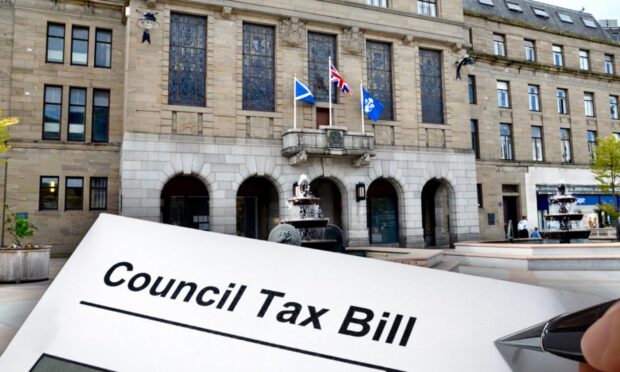A 74-year-old Dundee woman was conned out of £140,000 by scammers pretending to represent her bank.
The incident was one of a series across Tayside that have seen residents – many of them elderly – fleeced out of tens of thousands of pounds in so-called “phishing scams”.
The woman was contacted by con artists pretending to be from the fraud department of her bank.
They then stole £140,000.
The bank is still trying to retrieve the money on the victim’s behalf but police are urging other locals to be on their guard.
Phishing scams work by convincing people to either transfer money to another account or by tricking them into handing over their bank details.
A 75-year-old man from Montrose was recently duped into transferring £74,000 into other accounts. Luckily, his bank was able to retrieve the funds.
An elderly woman from Kinross received a call from someone claiming to be from BT, advising her that her computer had been hacked.
She provided her bank details which ultimately resulted in a loss of £5,000.
Police Scotland’s Tayside Division is advising residents to be alert to any phone call they receive from a person claiming to be from a bank, financial institution or business and asking for money to be transferred or asking for a phone call to be made to the bank.
Residents are urged not to provide their details and if they do decide to call the bank, to do so from a different phone line or mobile number.
If people are in any doubt about the claims, they should ask the caller to put a stop to their account and go to their branch in person.
People are also being warned to be wary of a rise in scam calls from “bogus bailiffs” in the run up to Christmas this year.
CPR Call Blocker, a company that makes call blocking devices, says it has seen an increase in cases of people impersonating bailiffs and threatening to turn up at a person’s home to demand cash in person unless they make a payment over the phone.
Spokeswoman Chelsea Davies said: “”We would advise people to be fully aware of their financial situations this Christmas so that they cannot be tricked in to thinking they owe money when in fact they don’t.”
Ms Davies added: “The public should be extra vigilant over the Christmas period and as always we would advise people not to give out any personal or financial information to an unsolicited caller.”










